
Breadcrumb navigation
A meeting of musical minds – workshop on performance, creativity, and AI
- From to

About this event:
- Category:
- Research
- Event type:
- Booking required | In-person
- Admission:
- Free Registration required
- Location:
- Silk Street Music Hall
Event information
Artificial intelligence (AI) is currently transforming our society and has opened up completely new avenues in many research fields, including music. Music AI research has focused mainly on the generation of music material - mostly in the context of composition. This overlooks a central aspect about music - music making entails multiple dialogues: between performer and audience; between performers as they play together; between composer and performers. While sonic materials are the primary component in these dialogues, gestures, facial expression, breathing patterns and other subtle forms of communication are also important. Since 2022 Composer Oded Ben-Tal and pianist David Dolan have been developing an artistic-research project which puts musical dialogues between human and an Artificial ‘Intelligence’ at its heart. Live, real-time, unconstrained improvisation based on mutual listening between Dolan and a system Ben-Tal is developing.
Based on this work, In 2024 Ben-Tal joined with Dr. Örjan de Manzano (Max Planck Institute for Empirical Aesthetics) to further develop this research with funding from the Volkswagen Foundation: “Creative musical dialogues between human and machine: a novel approach to studying improvisation and joint action”. Their aim is to open up new avenues of investigating musical dialogues through the prism of real-time human-computer improvisation. As part of this project we are convening a mini-conference to share our findings within a wider research and creative contexts, including both current and potential future paths. We aim to explore questions such as: understanding joint creative actions and how AI can better support human creativity; understanding the relationship between internal creative processes and their outcomes; offering new insights into long-standing questions about how music is created, expressed and shaped in real time; investigating the integration of AI technology into realms that were deemed until very recently the preserve of humans.
Photo: MPIEA / Felix Bernoully


Schedule & Participants & FAQs
Day 1: Sunday 30 March 2025
- 1-1.30pm – Registration & Tea/Coffee
- 1.30-2.30pm – Creative musical dialogues between human and machine: Dr. Örjan de Manzano and Dr. Oded Ben-Tal
- 2.30-3:15pm – Coffee break
- 3:15-4:45pm – Creativity in Performance: Prof. Elaine Chew and Prof. David Dolan
- 4:45-6:15pm – Wine Reception
- 6:15-8:15pm – Concert and discussion: ‘The Odd Couple - Human & AI Making Music in the Moment’
Day 2: Monday 31 March 2025
- 9.30-10am – Registration & Tea/Coffee
- 10am-12.30pm – Creative dialogues with technology: Gerard Assayag and Prof. Arthur I. Miller. In the second half of this session, they will be joined by Prof. Elaine Chew, Dr. Grace Leslie and Dr. Toby Young for a panel discussion.
- 12.30-2pm – Lunch
- 2-3:30pm – Music as creative communication: Prof. Ophelia Deroy and Dr. Grace Leslie
- 3:30-4:30pm – Coffee break
- 4:30-6pm – Roundtable discussion with Prof. John Sloboda, Prof. Ophelia Deroy, Dr. Örjan de Manzano, Prof. Fredrik Ullén and Dr. Oded Ben-Tal
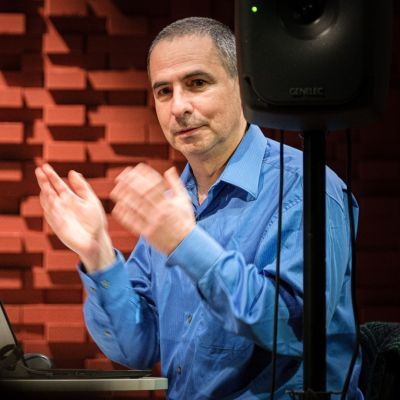
Dr. Oded Ben-Tal is a composer/researcher working at the intersection of music, computing, and cognition. His work addresses the evolving landscape of music composition and performance in the digital age, exploring how technology shapes artistic expression. Since 2016 he has been exploring the application of AI in music: using AI to generate compositional material and developing AI-inspired systems for live, interactive performances. His work was funded by grants from the UK’s Arts and Humanities Research Council and most recently by the Volkswagen Foundation in collaboration with the Max Planck institute for Empirical Aesthetics.
In addition to his compositional achievements, Ben-Tal – Associate Professor at Kingston University – is an influential educator. He has taught at various institutions, where he focuses on fostering creativity and critical thinking in music. His pedagogical approach emphasises the importance of interdisciplinary collaboration and encourages students to engage with both the theoretical and practical aspects of music.
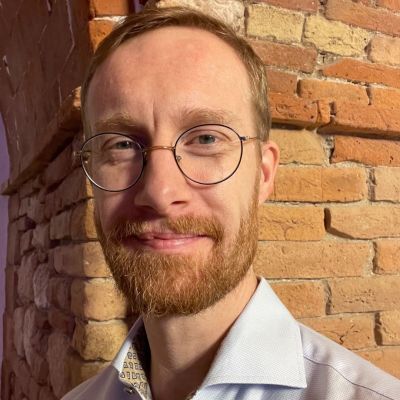
Dr. Örjan de Manzano is a Senior Researcher at the Max Planck Institute for Empirical Aesthetics in Frankfurt am Main, and co-founder of the Center for Culture, Cognition, and Health at the Karolinska Institutet in Stockholm. His research bridges between the natural sciences and humanities to explore the psychobiological mechanisms that underpin human skill learning and cognition. Music features prominently in his research as a pivotal domain for investigation. Particular interests involve the neural correlates of creative performance, and understanding the complex relationships between cognitive abilities, personality, motivational factors, and life experience, and how these converge to shape creative achievements. Dr. de Manzano is cohosting this mini-conference together with Dr. Oded Ben-Tal, as part of their collaborative project on real-time human-computer improvisation, where Dr. de Manzano specifically seeks explore how physiological markers of flow experiences may be used by Dr. Ben-Tal’s artificial improviser to heighten the musical quality and experience for both the musician and audience.
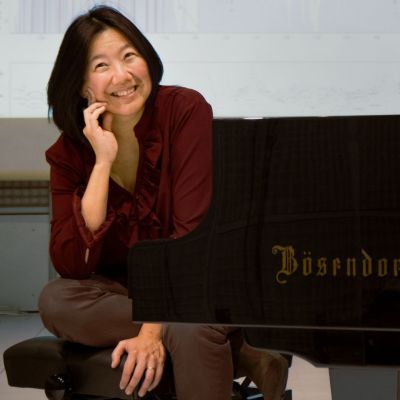
Prof. Elaine Chew is Professor of Engineering joint between the Department of Engineering (Faculty of Natural, Mathematical & Engineering Sciences) and the School of Biomedical Engineering & Imaging Sciences (Faculty of Life Sciences & Medicine) at King's College London. An operations researcher and pianist by training, Elaine is a leading authority in music representation, music information research (MIR), and music perception and cognition, and an established performer. A pioneering researcher in MIR, she is forging new paths at the intersection of music and cardiovascular science. Her research focuses on the mathematical and computational modelling of musical structures in music and in electrocardiographic traces, with application to music-heart-brain interaction and computational arrhythmia research. She is Principal Investigator of the European Research Council (ERC) Advanced Grant COSMOS (Computational Shaping and Modeling of Musical Structures) and Proof of Concept HEART.FM (Maximizing the Therapeutic Potential of Music through Tailored Therapy with Physiological Feedback in Cardiovascular Disease), using data/citizen science techniques to decipher the functions and mechanisms of music expressivity and deploying them in music-based digital therapeutics and precision diagnostics – music theranostics.
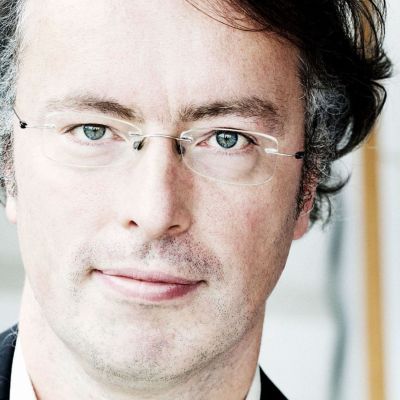
Prof. Fredrik Ullén is a director at the MPI for Empirical Aesthetics, Professor of Cognitive Neuroscience at the Karolinska Institutet, and internationally acclaimed pianist. His research focuses on the neuropsychology of expertise and creativity, i.e. the mechanisms in the brain that allow us to perform at a high level within a specific field, after many years of focused training. Specific interests include how the brain represents and controls musical skills, the importance of intrinsic motivation for learning and creativity, and the interplay between genes and environment during the acquisition of expertise. He also studies musical improvisation as a tool to understand creative problem solving and its brain mechanisms. His discography as a pianist currently includes 25 titles, including a recording of the complete piano works of György Ligeti and a recent complete recording of Sorabji's Transcendental Studies, one of the largest cycles written for solo piano.
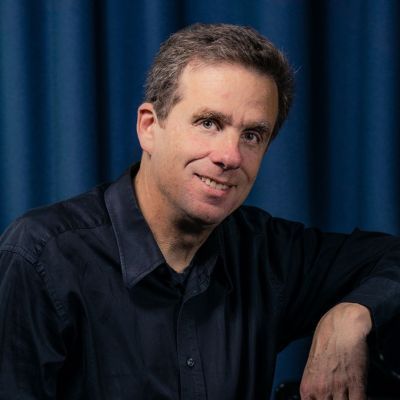
Prof. David Dolan is an international concert pianist, researcher and educator. He has devoted part of his career to reviving classical improvisation art and its performance applications. In his worldwide solo and chamber music performances, he returns to the tradition of incorporating extemporisations within repertoire in embellished repeats, eingangs & cadenzas, as well as improvised preludes, interludes and fantasies.
His research focuses on applying expressive narrative and creativity to repertoire and improvised performances (solo & ensemble), in close collaboration with Imperial College, London.
Professor of classical improvisation and its applications to solo and chamber music performance at the Guildhall School of Music and Drama in London, he heads the Centre for Creative Performance and Classical Improvisation. He also teaches at the Yehudi Menuhin School and conducts masterclasses and workshops in major music centres and festivals worldwide.
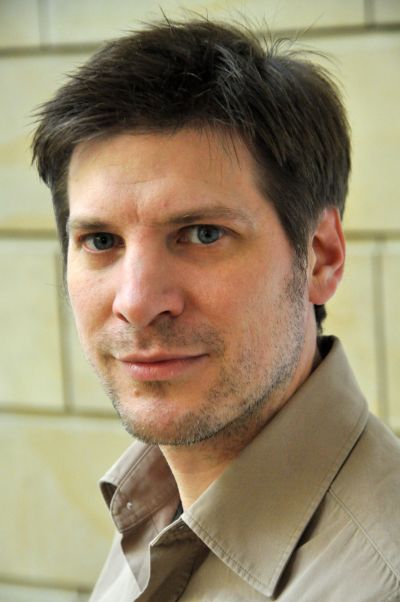
Ralph Abelein is a jazz pianist, arranger and composer and has been teaching jazz piano, improvisation/free accompaniment, arranging and ensembles at the HfMDK since 2005 as professor for Schulpraktisches Instrumentalspiel. In 2008, Ralph Abelein initiated the annual project ‘Music for Silent Movies’ at the HfMDK, which was awarded the Hessian University Prize for Excellence in Teaching in 2021. He represents the HfMDK on the board of the Hessian Film and Media Academy and is a member of the programme advisory board of the Polytechnische Gesellschaft Foundation for the foundation project ‘Jazz and Improvised Music in schools’. He played a leading role in the conception and preparation of the 'MA Bigband', a cooperative master's programme with the Frankfurt Radio Big Band, which was introduced in 2022, and heads it together with Hendrika Entzian and Ed Partyka. His textbook ‘Keyboard Accompaniment and Improvisation’, co-authored with Jyrki Tenni, has been published in four languages to date. In recent years, Ralph Abelein has worked intensively on the possibilities of free improvisation in ensembles and regularly holds courses on this subject.
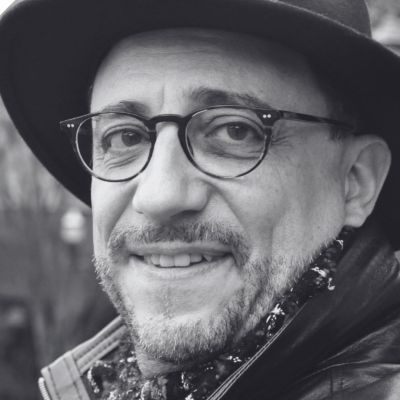
Gerard Assayag is head of IRCAM Music Representation Team, a team he has founded in 1992. He has been head of the Ircam research lab (STMS, a joint lab between Ircam, CNRS and Sorbonne University) between 2011 and 2017. His research interests are centered on music representation issues, including programming languages, machine learning, constraint and visual programming, computational musicology, music modeling, and computer-assisted composition and interaction. He has designed with his collaborators OpenMusic and OMax, two music research software environments which have gained international reputation and are used in many places for computer assisted composition, analysis and improvisation. Assayag has defined through theoretical publications and popular technologies such as OpenMusic and Omax the concept of symbolic interaction to account for rich and versatile musical dialog between machines and humans, traversing several levels and scales of information structure, from acoustic signal to higher symbolic and cognitive ones. His conceptions are now evolving towards general Co-Creativity in Cyber-Human Workshop, aiming at shaping the next generation of human-machine artistic interaction.
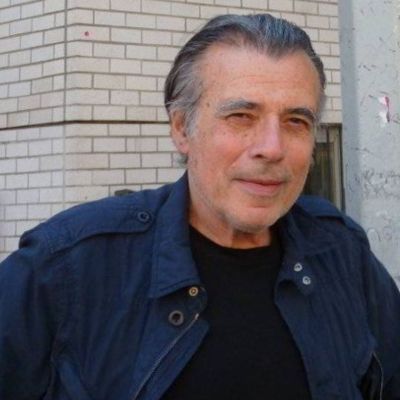
Prof. Arthur I. Miller Professor Emeritus of the History and Philosophy of Science at University College London. Trained as theoretical physicist, his real passion has always been creativity – what is it, how it works. This has led him to enlarge his research interests to include the history and philosophy of science, cognitive science, the history of art, AI, and playwriting. He is the author of many critically acclaimed books, including Einstein, Picasso: Space, Time, and the Beauty that Causes Havoc, nominated for the Pulitzer Prize; Empire of the Stars: Friendship, Obsession and Betrayal in the Quest for Black Holes, short-listed for the Aventis Prize; 137: Jung, Pauli, and the Pursuit of a Scientific Obsession; Insights of Genius: Imagery and Creativity in Science and Art; and Colliding Worlds: How Cutting-Edge Science is Redefining Contemporary Art. His most recent book, The Artist in the Machine: The World of AI-Powered Creativity, explores AI and creativity in art, literature and music. A regular broadcaster and lecturer, he has judged art competitions, curated exhibitions on the interface between art and science and writes for The Guardian, The New York Times, Scientific American, Wired and Nautilus.
His new play, Synchronicity, recreates the intriguing encounters between the analyst Carl Jung and the brilliant but troubled young physicist Wolfgang Pauli. Readings of it played to sell-out audiences in New York in 2023, and it was performed to critical acclaim at the White Bear Theatre, London, in November 2024.
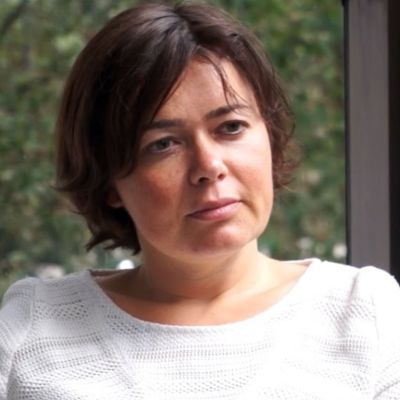
Prof. Ophelia Deroy's work is in philosophy of mind and cognitive neuroscience, and she is most well-known for her work on how information can be shared across different senses, as well as different minds. Ophelia is the Director of the interdisciplinary Centre for Research in Experimental Aesthetics, Technology and Engineering, which connects fundamental research questions about how we perceive, act, think and socially connect, to new ideas in the arts, policy and new technologies. Ophelia was the Associate Director of the Institute of Philosophy until 2017, and now holds the Chair for Philosophy of Mind at the Ludwig Maximilian University in Munich, Germany.
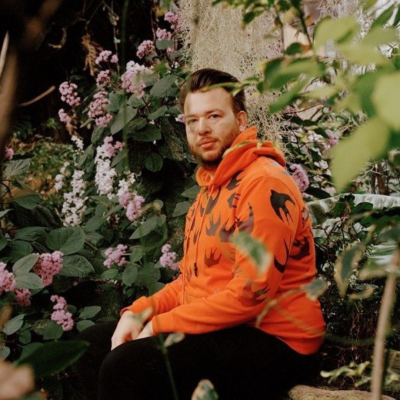
Dr. Toby Young is a Future Leader Fellow at the Guildhall, and director of Immersive Opera: a £1.4M UKRI–funded project developing new ways of staging and creating opera for the digital age. As a composer and sound-designer he has written soundtracks to a variety of TV and stage works including BAFTA-nominated productions for HBO and Sky Arts. He was previously the Music Supervisor of Punchdrunk (Third Day, The Burnt City) and creative lead for the Philharmonia Orchestra’s ‘Audience of the Future’ project, creating orchestral and operatic experiences in 360º video and site-specific audio.
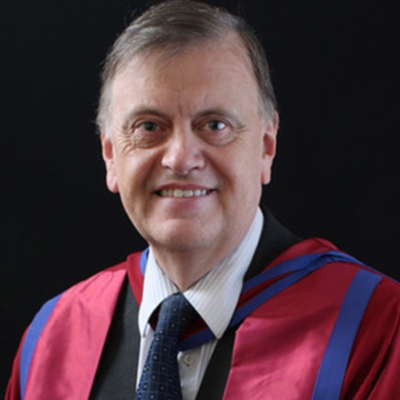
Prof. John Sloboda is an Emeritus Professor at Guildhall School, where he was the founder of its Institute for Social Impact Research in the Performing Arts. He was Principal Investigator on the AHRC-funded project "Music for Social Impact: Practitioners' contexts, work, and beliefs" from 2020-2023, and from 2009-2019 led Guildhall School's "Understanding Audiences" research programme. He is Emeritus Professor at Keele and was a staff member of the School of Psychology at Keele from 1974-2008, where he was Director of its Unit for the Study of Musical Skill and Development, founded in 1991. John is internationally known for his work on the psychology of music. He is a Fellow of the British Psychological Society and has been President of both the Psychology and General Sections of the British Association for the Advancement of Science, as well as President of the European Society for the Cognitive Sciences of Music. He served a 3-year term as founding President of www.simm-platform.eu, an international platform for research into the Social Impact of Making Music. He was the recipient of the 1998 British Psychological Society's President’s Award for Distinguished Contributions to Psychological Knowledge, and in 2004, he was elected to Fellowship of the British Academy. In 2018, he was awarded an OBE for his services to psychology and music. His books include Handbook of Music and Emotion (co-edited with Patrik Juslin), and Exploring the Musical Mind, both published by Oxford University Press. He continues a close association with Guildhall School, where he is currently co-supervising three doctoral students.
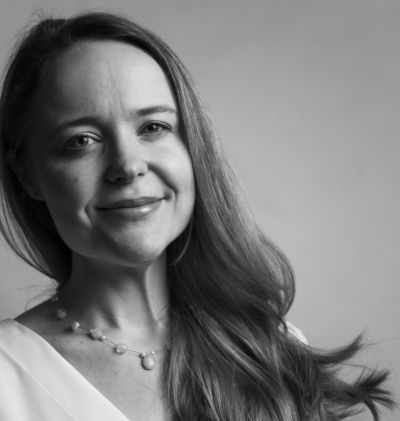
Dr. Grace Leslie (Assistant Professor of Music, ATLAS Institute, CU Boulder) is a flutist, electronic musician, and scientist who develops brain-music interfaces and physiological sensor systems to enable communication and entrainment among humans and computers. As an electronic music composer and improviser, she integrates traditional musical expression with new forms enabled by brain-computer interfaces, maintaining a brain-body performance practice. She has performed worldwide, releasing three records of her mind-body music.
Previously a postdoctoral fellow at the MIT Media Lab, she explored links between cortical and physiological arousal, developing music interfaces for well-being. She later collaborated on epilepsy therapies using electronic music at Dartmouth College.
Grace holds degrees in music, science, and technology from Stanford University (CCRMA) and a Ph.D. in Music and Cognitive Science from UCSD, where she studied expressive movements and brain dynamics. Before joining CU Boulder’s ATLAS Institute, she was an assistant professor of Music Technology at Georgia Tech.
Will food/drink be provided?
Tea & coffee will be provided throughout both days of the workshop, and wine will be provided ahead of the concert on the Sunday.
Please note, we will only be providing lunch on the second day.
What accommodation is available?
There are a number of hotels within walking distance of the School, including:
Please note, Guildhall School does not have any affiliations with any accommodation providers listed above.
Which building is this event located in?
This event will take place in our Silk Street Building. Find Silk Street on Google Maps.
Silk Street Building
Guildhall School of Music & Drama
Silk Street
Barbican
London
EC2Y 8DT
You will receive further information on arrival nearer the event time.
Is the space accessible?
In our Silk Street building, hearing loops are provided in the Music Hall and Theatre, with all venues suitable for wheelchair users. Please do not hesitate to contact us if you have any questions about accessibility.
Can I view the space in advance?
A 360° tour of our facilities can be viewed here: Visiting Guildhall School | Guildhall School of Music & Drama
Do I need to register separately for the concert?
No, you do not. If you have a ticket for the conference, you will automatically be registered for the concert too. If you are unable to attend the concert, please email eventsmanager@gsmd.ac.uk.
Cancellation
If you cannot attend the event, please let us know as soon as possible by emailing eventsmanager@gsmd.ac.uk so we can offer your space to the next person on the waiting list.
How do I get to Guildhall School?
The School is based in the heart of the City of London, and is part of the Barbican complex, next door to the Barbican Centre.
By underground/train
Barbican, Moorgate, Liverpool Street, St Paul’s and Bank stations are all nearby.
By bus
Bus numbers 4, 43, 55, 76, 100 and 153 stop nearby.
By road
The School falls within the Congestion Charge zone. Visit cclondon.com or telephone 0845 900 1234 for further information.
Silk Street Building
Guildhall School of Music & Drama
Silk Street
Barbican
London
EC2Y 8DT
Find Silk Street on Google Maps.
Venue information
Silk Street Theatre, Music Hall and Lecture Recital Room are located in the main Guildhall School building on Silk Street and for Barbican produced events the venue can also be accessed from the Barbican if you exit via the doors next to Barbican Kitchen on Level G.
-
Silk Street
Barbican
EC2Y 8DT

